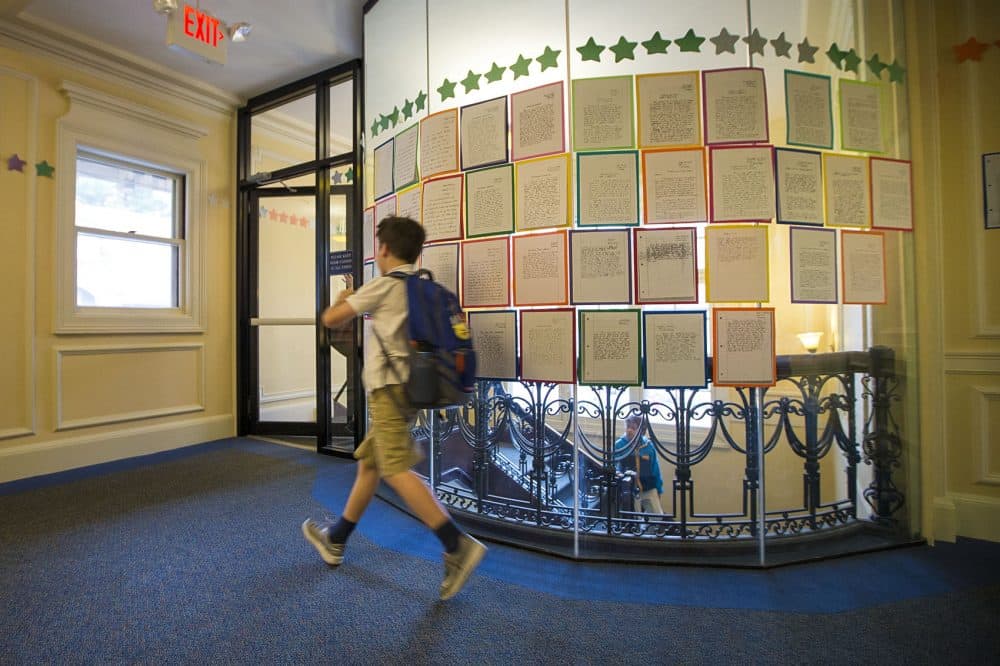Advertisement
What's Behind The Push In Scientific Research To Identify Dyslexia Early
Resume
Most public schools in Massachusetts don't screen students for dyslexia. Instead, they wait for students to show signs of trouble with reading and writing.
It forces some parents to choose expensive private schools to help their children.
State lawmakers are reviewing legislation that would require routine screening for dyslexia as early as kindergarten.
The bills are inspired largely by the cognitive neuroscience research of Harvard Medical School associate professor Nadine Gaab. She has done extensive research on the identification of possible pre-markers of developmental dyslexia in the infant and pre-reading brain. She spoke with WBUR's Morning Edition host Bob Oakes about the advantages of identifying dyslexia early.
"We don't recommend diagnosing earlier, what we recommend is identifying children at risk earlier," Dr. Gaab says. "The idea is to identify who may struggle and then intervene as early as possible -- in kindergarten, first grade or even before that -- so that these children will have a less severe form of dyslexia or will never get diagnosed."
Interview Highlights:
What should teachers or parents look for?
"We hope to make screening more accessible for a wider variety of children. For instance, we are currently developing an app that would have a 30-minute game, that at the end of the game would tell you whether a child is at risk for developing a reading disability or not. An app like this could, for example, be administered at a pediatrician's office for a five-year wellness checkup. It could administered at libraries, at the Boston Children's Museum, summer camps and other doctor's offices, etc."
You say screening should be done widely, are you saying that all young kids should be screened for dyslexia?
"Exactly. There is currently some legislation attempts on Beacon Hill and we hope that this will go through, which would allow for mandatory screening for all incoming kindergartners in Massachusetts. Some states already have that in place.
"People should think about shifting resources from the third and fourth grade to the kindergarten age."
What should parents be looking for as symptoms?
"I always recommend that the absolute cheapest and easiest screener in a school district, would be to ask parents whether there is a familial risk for dyslexia or reading impairment in the family. So, if you have an older sibling or a parent with a diagnosis of dyslexia, you have a 50 percent chance of also developing dyslexia yourself.
"There's some other really good predictors, such as the ability to manipulate the sounds of language. I give you an example. So there could be someone asking the child, 'Say the word banana without ba' or 'say the word cowboy without cow.' These are really, really good predictors of later reading outcomes."
For more information and resources on dyslexia: The Gaab Lab, Decoding Dyslexia, and the International Dyslexia Association.
This segment aired on May 30, 2017.

